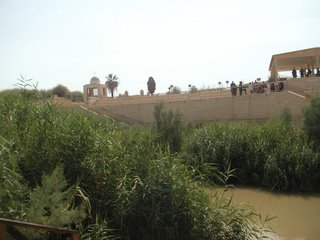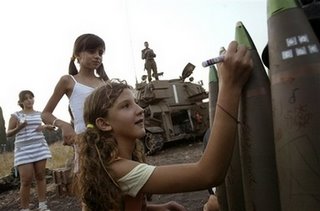
At this time of year when faithful Christians remember a town in the Holy Land where the Gospel writers place the birth of Jesus and celebrate God's presence with humanity, it might be well to also remember the real Palestinian city that exists today on the occupied West Bank. A recent two country survey revealed large gaps between the perceptions of most Americans and the reality on the ground. Almost sixty percent of Americans believe that Bethlehem is in Israel and that its population is Israeli rather than the reality that Bethlehem is on the occupied West Bank and is populated by Arabs, a mix of Christians and Muslims. (to see the entire poll results, click here) As I struggled to write something appropriate at this time of year about the situation in Bethlehem, I was saved by a friend in Colorado who wrote the following column for the local paper:
Rich Mayfield wrote:
Although I’m no longer in the business, I still find myself planning the Christmas Eve worship service for an imaginary congregation. Christmas Eve is particularly vexing for pastors, priests and other worship planners as they seek to somehow extrapolate the church’s ancient message from its current commercialized morass. Trying to tell the tale of a displaced couple living in an occupied territory, temporarily homeless, decidedly pregnant and totally dependent on the kindness of strangers is a challenge on the best of days. Any preacher prepared to proclaim the social injustices inherent in this story, mythological or not, should also be ready for the antipathetic aftershocks from their tradition-demanding congregation. Sentimentality is synonymous with this time and woe to the man or woman who points to the corollaries between the unjust then and the unjust now.
Several years ago, during a December Sunday worship service, a young man, nicely dressed and of a swarthy complexion, asked if he could address the congregation. Control freak that I am, I found myself caught between the poles of self-proclaimed hospitality and self-protecting jurisdiction. Acquiescing toward the former, I pretended to be at ease and invited the gentleman forward.
He quietly introduced himself as a Palestinian from the town of Bethlehem traveling through the United States and then he said, “I bring you sad tidings of great sorrow…” He went on to describe the current conditions in his hometown; the lack of jobs and its accompanying poverty, the despair in the hearts of many and the growing violence among the young. He portrayed a less than “little town” that was anything but a place for “deep and dreamless” sleeping. Random rocket fire, illegal search and seizures, the destruction of ancient family homes, made Bethlehem a place with little hope and lots of fears.
That was three years ago. Life in Bethlehem has only grown worse, unimaginably, much worse. In a news release this week, the mayor of Bethlehem, Dr. Victor Batarseh, described the current situation: “(There is) a rise in the rate of unemployment, reaching 65 percent and all are living under the poverty line as a result. Thousands of students can no longer reach their schools as the Wall and settlement roads prohibit them, and more still cannot reach Bethlehem University in the heart of Bethlehem. Hospitals are now unreachable for many in the District as they are trapped in the ghettos that checkpoints, the Wall and its gate system have created. The Mayor joked bitterly that "Santa Claus will not make it to Bethlehem this year." The 50,000 dollars approved by the Palestinian government for Christmas celebrations in Bethlehem, for decorations and beautification, has not yet reached the city, despite being told that the funds had been deposited into the municipality's bank account.”
Anyone remotely familiar with the current condition of Bethlehem will find the singing of sentimentalized accounts of Jesus’ birth amidst a setting of angelic harmony and goodwill for all difficult if not impossible to intone. This year especially, Christians should hearken back to the warning of an ancient prophet, “They have healed the wound of my people lightly, saying, “Peace, peace, when there is not peace.”
I once hosted, for just a day, a Lutheran pastor from Bethlehem. He was a Palestinian who had beaten the odds against his countrymen by earning a Ph.D. from a prestigious university. He was a brilliant scholar who could be teaching in any number of academic settings. Instead he chose to return to the place of his birth, the traditional place of Jesus’ birth, where he has fought the overwhelming odds and managed not only to ply his pastoral trade in a vibrant congregation but has built a school for Palestinians, both Muslim and Christian, formed an institute for cultural understanding, a college for higher education, a wellness center and more. (www.mitriraheb.org)
We spent our time discussing the deep theological issues as well as our own personal ones. We commiserated over the similar problems we shared as parish pastors, laughing over some and soberly nodding over others. I was deeply impressed by his commitment both to providing opportunities for his people and seeking peace for the world. When the day was over, he got on a plane to Palestine and I drove back up to my home in the tranquil and beautiful mountains. On occasion, I hear of his activities back in his hometown. He’s been harassed and hassled by the authorities. His office and home have been occupied and vandalized. His work has been interrupted by official sanctions and unofficial threats. This is life in Bethlehem these days.
I wonder what hymns he will choose for his congregation to sing tomorrow night?
As we pray for "peace on earth good will toward men" (and women), it might be appropriate to also pray for the real Bethlehem as well as the Bethlehem of legend.
Merry Christmas to all and to all a good night.






